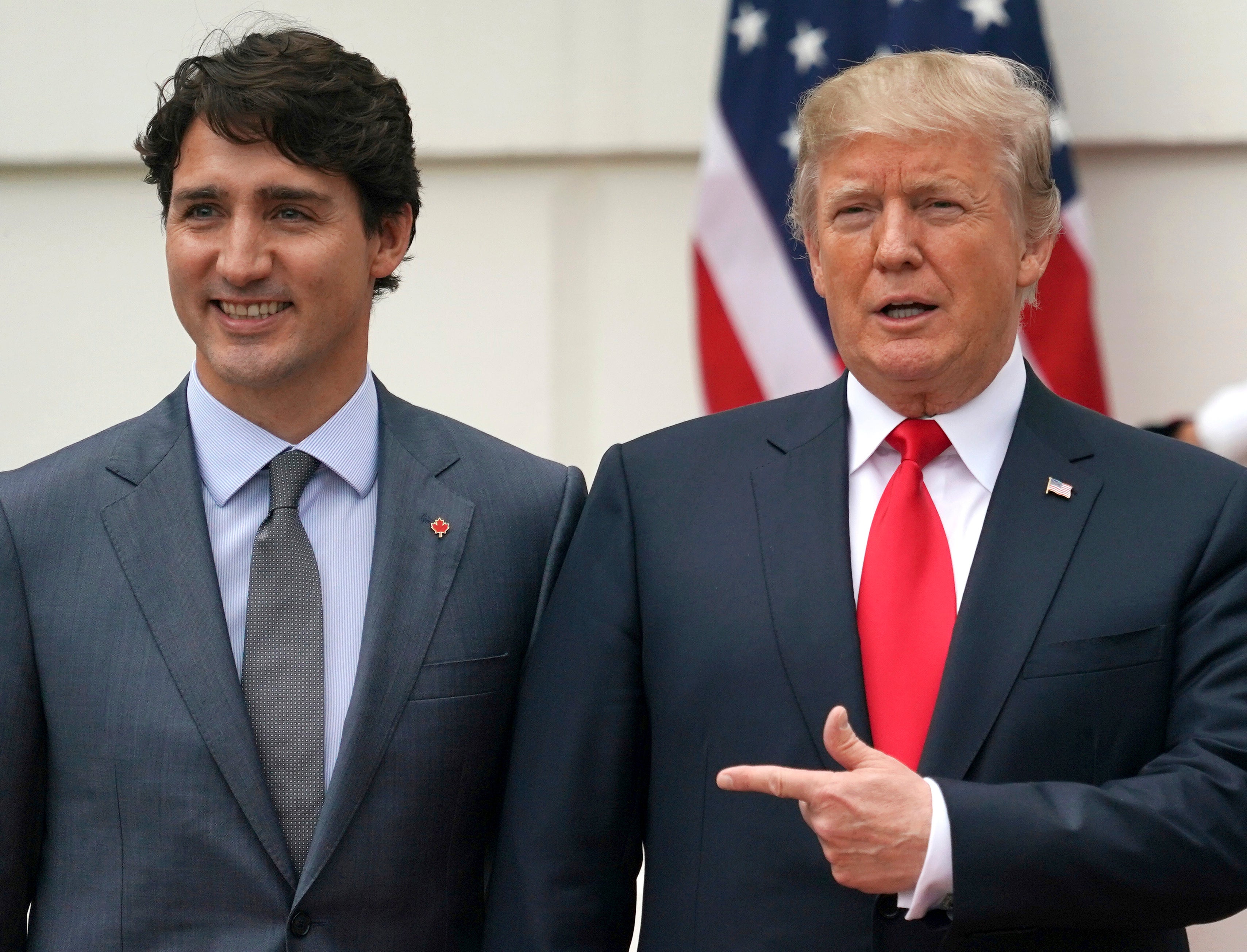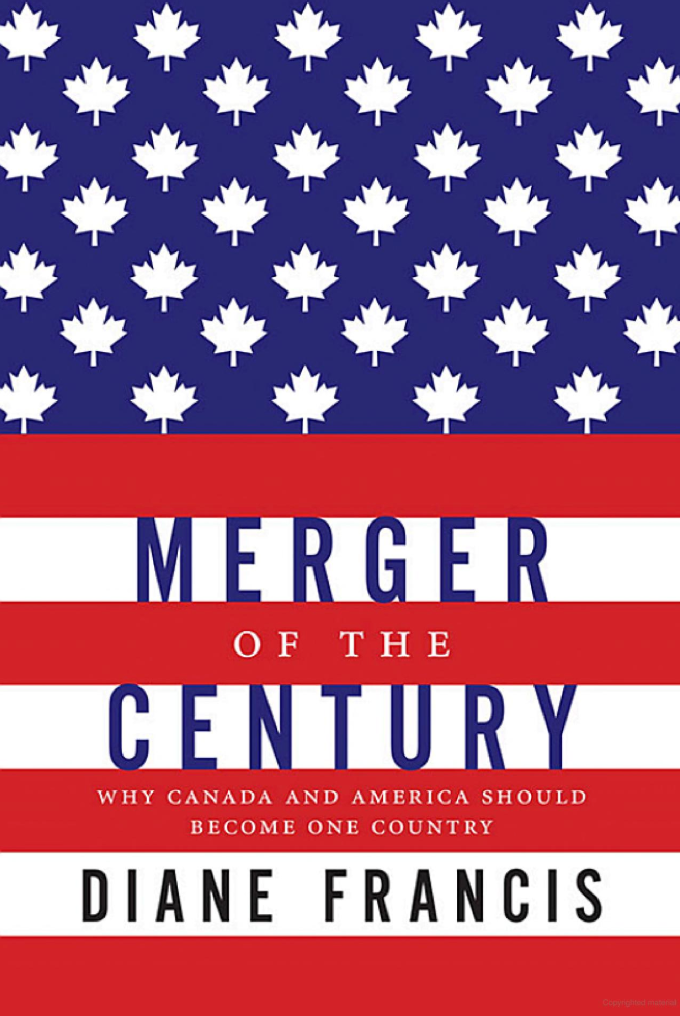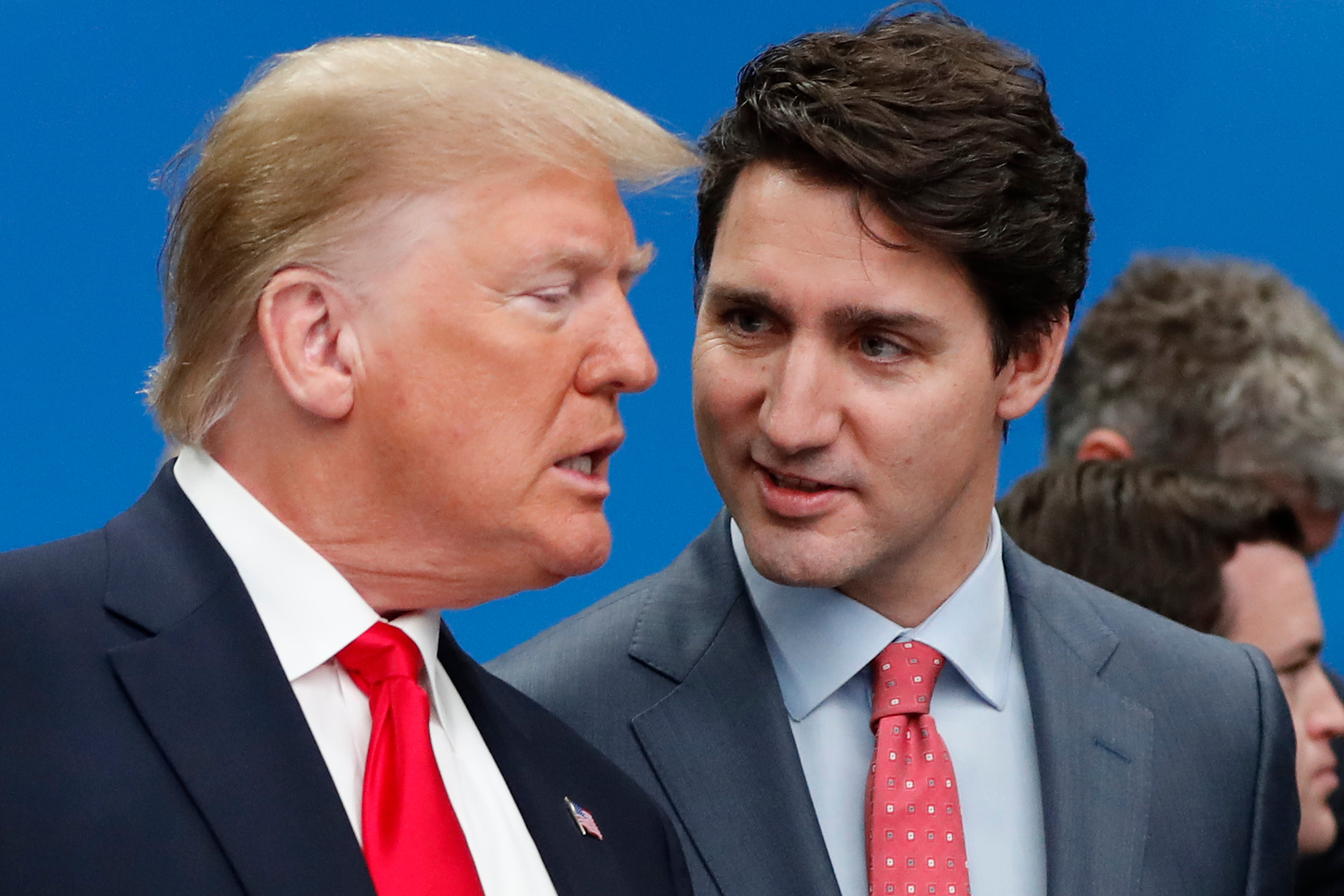Diane Francis didn’t move to Canada to cause controversy. She crossed the border from her native U.S. with something entirely different in mind: “I immigrated with a draft dodger during the Vietnam War.”
Long after the war was over, she stayed, she gained Canadian citizenship, she raised her children in her adopted country. And then she wrote the book that had her “blacklisted” from some media circles and frozen out from others.
“A lot of Canadians hated the book,” she says, in a video interview from her luxury condominium in Toronto. “They hated the idea that someone would even write the book.” Though it sold well in a number of countries, it was barely reviewed inside Canada: people didn’t want to talk about the elephant in the room, she believes. Francis’s Canadian kids “did not like it,” either.
Then, 12 years later, Donald Trump said Canada should become America’s 51st state. And people started to whisper about whether Francis might have been right all along.
The book in question was The Merger of the Century: Why Canada and America Should Become One Country. Published in 2013, it wasn’t entirely received as Francis intended.

“It was really a warning,” she tells me. “Okay, get yourself organized, guys. You’ve got a great country — we’ve got a great country here, and you know, frankly, we don’t want their gun laws and we don’t want their lousy healthcare system, their crime rates, blah, blah. So let’s do something about it. Or — and I said this very clearly — they’re gonna make a takeover bid, and they’re gonna gobble us up.”
Francis understands why Canadians would bristle at the suggestion (indeed, a recent study found 94 percent of Canadians are opposed to becoming part of the U.S.). She herself found Trump’s comment about Canada becoming America’s 51st state offensive. But it was clearly just “trash talk,” she says. “It was insulting. But I don’t criticize Trump for that, because frankly — and I’m saying this as an American citizen, and I love the place — they’re very ignorant about other countries.”
Nevertheless, there’s something legitimate there to open a negotiation, she adds. “If I were the prime minister of Canada tomorrow, I’d go down and say: ‘Look, President Trump, totally understand your M.O., I get it. You’re right. I wrote a book about it. We haven’t been pulling our weight. Here’s what we propose. We will double the amount we spend on the military. We will procure everything from pencils to tanks from U.S. suppliers — that will help with the trade deficit. And that’s my pledge.’ For him, that’s a big win.”
“I’d just say, you know, we can’t take a tariff,” she adds, of Trump’s recent threats to impose sweeping 25 percent tariffs on goods from Canada. “That’ll cause trouble for you guys too. And so, would you please rethink the tariff if we do those things? And what else would you like us to do? We’ll consider.”

Francis has been saying for a while that the merging of Canada and the U.S. is “inevitable,” and that the best way Canadians can respond to that inevitability is by working seriously on the deal. In one of the thought experiments she put forward in the past, she suggested that promising free healthcare for life would soften the blow for Canadians wary of a fully merged Canada-U.S.
These days, however, she thinks that if Canada and the U.S. did become one country, their political systems would have to remain separated. Although she points out that many northern American states — such as Vermont, Washington, New York, Oregon, or Maine — tend to have laws very similar, or even more progressive, than Canada itself, she accepts that other states have moved further apart from their Canadian neighbors on issues like abortion, euthanasia, capital punishment and gun control since she wrote the book. That would mean a less easy, though still workable, union, where politics are devolved.
Considering that it’s already very easy for Americans and Canadians to live and work in each others’ countries, a fully open border wouldn’t be seen as a positive these days, either — by Americans or Canadians. Canada — whose health care system is “far superior,” Francis points out — could become “deluged with health care refugees.” Either the U.S. changes its approach to health care (which she thinks is coming, especially after the outpouring of anger following the assassination of UnitedHealthcare CEO Brian Thompson in New York) or the border should have some controls retained around it. That’s likely what Americans want right now, as well, considering the anti-immigration bent of Trump’s second term.

By working to merge in an intelligent and nuanced way, however, the countries could still work together to take advantage of Canada’s vast natural resources, she says. That doesn’t mean the U.S. simply trying to seize Canada’s assets for its own (“I don’t think the Americans realize how much it would cost them. The calculation I made was 17 trillion [dollars]. That’s half a million per person in Canada. That’s a lot of money. And why do it unless you have to? They don’t have to.”).
But it does mean that “Canada could say: ‘Yeah, you know, you’re right about the Arctic, but we have a small population. We’ll build military bases up there to help and you can partner in resource development, but we don’t have any infrastructure up there. So, we’ll do some of that. That’s how it could be structured.” Indeed, Francis is a true pragmatist, who isn’t interested in being dragged into the war of words she sees escalating between American and Canadian politicians right now: “The grandstanding is amusing to me.”
In a recent op-ed for Fortune, Canadian author Don Tapscott laid out his own vision for a United States of Canamerica. In it, he agreed there could be distinct economic advantages for the U.S. and Canada if they were to become one big, happy country — but added that there would be some stipulations Canadians would be unwilling to rethink. Like Francis, he was particularly concerned by the health care issue: “Canadians also live six years longer than their American counterparts and perform better on virtually every other health measure, from infant mortality to obesity and mental health,” he wrote. Nationalized healthcare would make sense both from a quality-of-life perspective and a financial perspective, considering Canada spends just 11 percent of its GDP on health care (compared to the U.S.’s 19 percent) and manages to cover every citizen.
Climate change, too, would have to get back on the agenda, Tapscott added. “True, we’ve historically benefited from fossil fuels, but we play our role in the green economy through government investments, entrepreneurship, and yes, carbon taxation,” he said.
Allowing in more refugees, standardizing K-12 education, and bringing in strict political campaign financing laws also made Tapscott’s list. Needless to say, those are all fairly unlikely to make Republican hearts sing south of the Canadian border.
However, Rupa Supramanya, an Ottawa-based journalist for American online news outlet The Free Press, found a warm reception for the idea of a CanAmerica merger in her city — especially among people in their 20s and 30s.
Over email, Supramanya told me she wasn’t surprised. “Put simply, they see better opportunities if Canada is attached to a more dynamic economy,” she told me.
It isn’t just the economy that Canadians envy. It’s also, Supramanya believes, the fact that Americans have a stronger sense of their own identity. “Americans have a positive sense of who they are centered around their culture and history,” she says, with a pop culture output that “dominates the world.” On the other side of the border, “many Canadians, especially on the left, identify themselves as non-American. In other words, Canadian identity is ‘we’re not American,’ which is a negative and fragile sense of who they are.”
Supramanya believes there could be an EU-style agreement between the U.S. and Canada on the horizon, “especially if the Canadian economy continues to underperform the US.” But with a lame duck prime minister, a prorogued parliament and “an ongoing liberal party leadership contest that will not be resolved until March,” Justin Trudeau has “an extremely weak hand” to play against Trump, she adds.
Diane Francis agrees: Canada needs someone better than Trudeau to negotiate terms, she said in a recent YouTube video, because Trump is “eating him alive already.” During our interview, I suggest that maybe Mar-a-Lago will come calling for her instead, considering her long history of taking a merger seriously.
She smiles. “The team has my book — I know this. I’ve gotten calls.”







